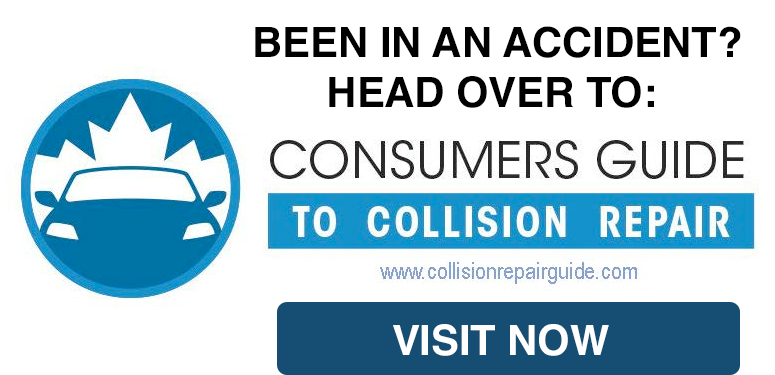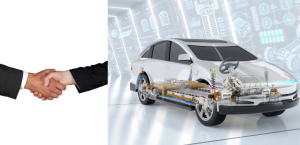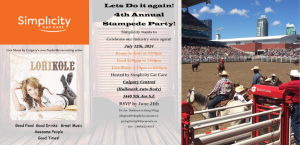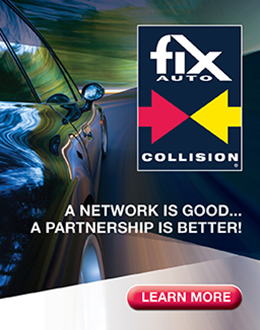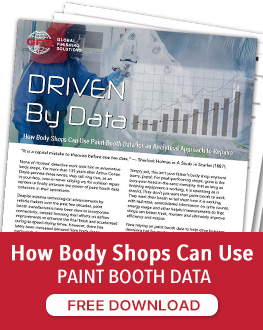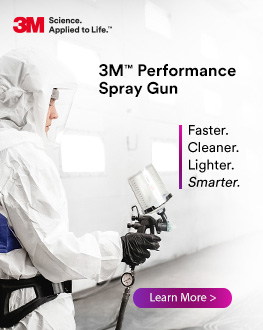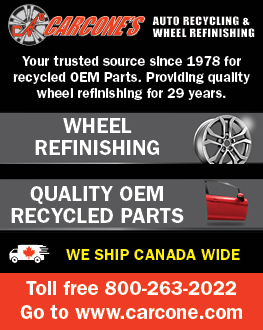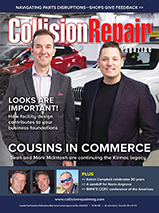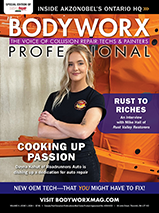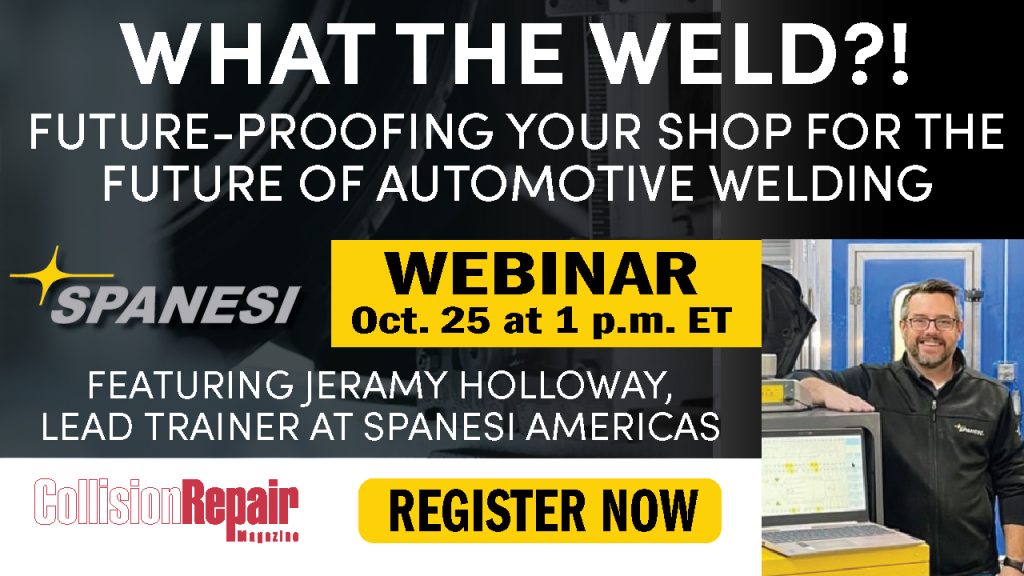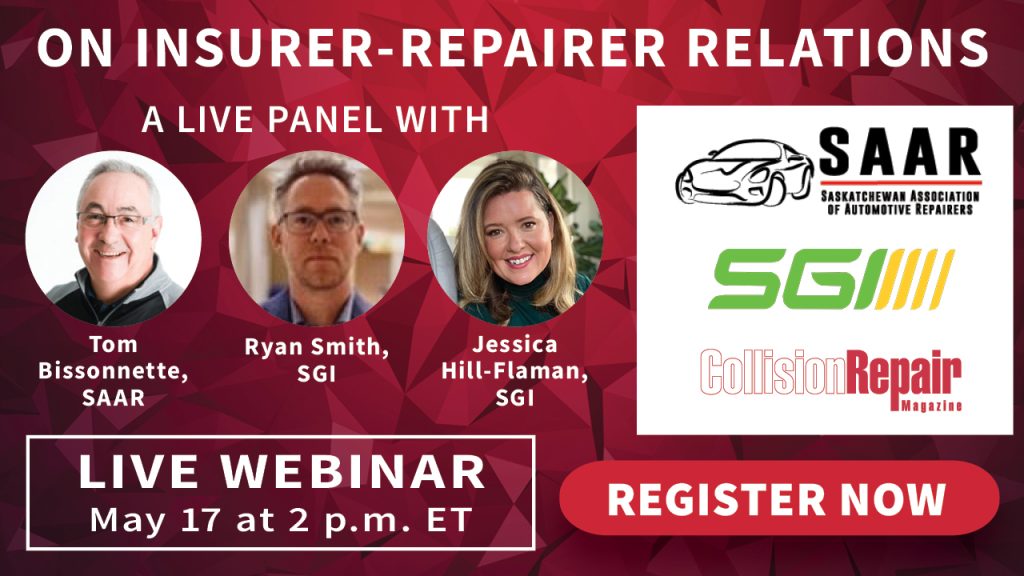Toronto, Ontario — June 29, 2018 — In today’s Friday Fun: Insurance adventures, in-shop panel printing, the country’s first hydrogen station, and much, much more.
A decision was handed down this past week in a unique auto collision case. According to a report in Canadian Underwriter, a woman lost both legs as a result of a pair of back-to-back accidents. Santanna Marrocco was a passenger in a car driven by Doris Brodie, her mother-in-law and employer. That car was in a collision. Marrocco was standing at the scene of that collision when she was hit by a car driven by Stephen Heft. She lost her legs in the second accident. Lawsuits came from all directions, including a filing from the municipality. The daughter-in-law claimed that the second accident was only a result of the first, and so it was the mother-in-law who was at fault. The daughter-in-law proceeded to sue the mother-in-law. The mother-in-law ended up a defendant along with the owner of the car, TD Auto Finance Services Inc. The two parties succeeded in defending themselves against a suit from the daughter-in-law. From that point, the mother-in-law claimed the daughter-in-law was delivering a floral arrangement to a customer. That is, the daughter-in-law was at work for her mother-in-law, the employer. Ontario’s Workplace Safety and Insurance Act protects employers from being sued by employees for personal injuries resulting from accidents that might occur in the course of employment. Which is a lucky thing. Employers who pay premiums to the Workplace Safety Insurance Board enjoy no-fault system. But at the time of the 2010 collision, the floral business was not actually registered with the Workplace Safety Insurance Board (WSIB). Luckily a voluntary registration with WSIB saw the date of the registration back-dated to before the accident (apparently, this is a policy). It’s not perfectly clear in the Canadian Underwriter story, but presumably the rehabilitation costs of the victim have now bounced back to the WSIB. The defendants had asked for $63,000 in damages. The judge gave them $5,000. “The circumstances of this particular case are unique, if not exceptional,” wrote the Ontario Superior Court Justice in his ruling. No kidding. https://bit.ly/2tIuGuw
An insurance appraiser in California, already convicted on 10 felony counts of insurance fraud, was ordered this week to pay almost $700,000 in restitution to six auto insurers. The damages arose from a string of fraud cases in which the material damage appraiser inspected damaged vehicles, prepared repair estimates and then issued checks to claimants. The collisions never occurred. Vehicles were intentionally damaged. According to government prosecutors, the plan involved a “capper” who recruited people to insure vehicles and make the fraudulent claims. The rogue appraiser took Northwestern for the most money. But he also moved on to Met Life in Nevada and ended up submitting more than 70 fraudulent claims (he also hit State Farm, Wawanesa, and Mercury) before he got caught. https://bit.ly/2KqfJHQ
China recently announced that their country will no longer accept the world’s plastic garbage for recycling. This is good for Volvo. The company announced this past week that from 2025 onward every new model launched by the company will utilize plastic made with 25 percent recycled material. The company displayed a special XC60 this week featuring a tunnel console using fibres from discarded fishing nets and maritime ropes. The carpet contains shredded PET plastic bottles and a recycled cotton mix from a, “… clothing manufacturers’ offcuts.” The seats also uses, “… PET fibres from plastic bottles. Used car seats from old Volvo cars were used to create the sound-absorbing material under the bonnet.” A stack of old pop bottles and a 3-d printer and you can print panels right on the floor of any collision repair center. Maybe an enterprising shop can offer custom made floor mats forged out of local recycled plastic to clients. Print the mats in the shop. Put the name of the owner on them. Offer them at a discount to OEM mats. That’s service. https://bit.ly/2yEayzv
Carbon fibre, that magical material used for body panels in high-end vehicles, is also being recycled now. According to a UK trade report, “A significant proportion of material is wasted during the production of many carbon fibre parts… [A UK firm] runs a dedicated carbon fibre recovery plant, with the aim of industrialising the conversion process to produce recycled carbon fibre products at high volumes.” https://bit.ly/2tjChj7
Ready to begin repairing hydrogen powered vehicles? Hyundai Auto Canada announced, along with Shell, that the country’s first hydrogen refueling station has opened in Vancouver. The station is on Granville Street. To celebrate the launch Hyundai hosted a ride-and-drive of hydrogen-powered vehicles. On hand was a Hyundai NEXO, the company’s second-generation hydrogen powered electric vehicle. The press release claims that Hyundai has long believed that hydrogen is the best way forward to “a greener future of transportation.” Don Romano, president and CEO of Hyundai Auto Canada, was quoted as saying, “It only takes five minutes to fill up and has a range of nearly 600 km, Hydrogen is the alternative fuel that best fits the lives of Canadians.” Hydrogen is used by so-called fuel cell technology. Hydrogen and oxygen are combined in the fuel cell stack. The two fuels pass through highly engineered membranes that strip electrons from the atoms, creating a charge. The electro-chemical reaction creates electricity that turns the wheels. The only by-products are electricity and water vapour. That mean, technically, it is possible to drink the exhaust of the vehicle. Which is neat. https://bit.ly/2tjChj7
It was only two weeks ago that Ford announced it will stop making sedans and focus on SUVs, and automated vehicles. According to a story in the business press this week, sedans are already dropping in value as customers realize there won’t be support for these vehicles far into the future. According to the story, “… the auto industry’s wholesale shift to SUVs represents a massive buying opportunity… “Back in 2015, when the Dodge Avenger was mercifully relegated to a footnote in Fiat Chrysler history, the last models sold for more than 15 per cent off the sticker price, a savings of roughly US$4,000. Earlier this year, the company was forced to put a similar chunk of cash on the hood of its last 200 sedans. Over the next few years, Ford will be navigating a similarly fraught path. It’s preparing to jettison parts of its lineup that aren’t considered an SUV or crossover – including Taurus (production ends March, 2019), Fiesta (May, 2019) and the Fusion sedan (some time in 2021). According to sources in the story the value of the cars being dropped from the lineup are already headed down. A Bank of America analyst was quoted as saying, “They need to do [this] very delicately.” A Ford dealer from Kentucky was quoted saying that his team is already having trouble selling sedans – the word is out. “It’s incumbent upon them to do what’s right. It’s money that moves the metal; we all know that,” the dealer was quoted as saying.
Toronto, Ontario — June 29, 2018 — In today’s Friday Fun: Insurance adventures, in-shop panel printing, the country’s first hydrogen station, and much, much more.
Adecision was handed this past week in a unique auto collision case.According to a report in Canadian Underwriter a woman lost both legs as a result of a pair of back-to-back accidents. Santanna Marrocco was a passenger in a car driven by Doris Brodie, her mother-in-law and employer. That car was in a collision. Marrocco was standing at the scene of that collision when she was hit by a car driven by Stephen Heft. She lost her legs in the second accident. Lawsuits flew from all corners, including a filing from the municipality. The argument was that the victim, who was in the car with the mother-in-law, was only hit in the second accident as a result of the first. The daughter-in-law claimed that the second accident was only a result of the first, and so it was mother-in-law who was at fault. The daughter-in-law sued the mother-in-law. The mother-in-law ended up a defendant along with the owner of the car, TD Auto Finance Services Inc. The two parties succeeded in defending themselves against a suit from the daughter-in-law. From that point, the mother-in-law claimed the daughter-in-law was delivering a floral arrangement to a customer. That is, the daughter-in-law was at work for her mother-in-law, the employer. Ontario’s Workplace Safety and Insurance Act protects employers from being sued by employees for personal injuries resulting from accidents that might occur in the course of employment. Which is a lucky thing. Employers who pay premiums to the Workplace Safety Insurance Board enjoy no-fault system. But at the time of the 2010 collision, the floral business was not actually registered with the Workplace Safety Insurance Board (WSIB). Luckily a voluntary registration with WSIB saw the date of the registration back-dated to before the accident (apparently, this is a policy). It’s not perfectly clear in the Canadian Underwriter story, but presumably the rehabilitation costs of the victim have now bounced back to the WSIB. The defendants had asked for $63,000 in damages. The judge gave them $5,000. “The circumstances of this particular case are unique, if not exceptional,” wrote the Ontario Superior Court Justice in his ruling. No kidding. https://bit.ly/2tIuGuw
An insurance appraiser in California, already convicted on 10 felony counts of insurance fraud, was ordered this week to pay almost $700,000 in restitution to six auto insurers. The damages arose from a string of fraud cases in which the material damage appraiser inspected damaged vehicles, prepared repair estimates, and then issued checks to claimants. The collisions never occurred. Vehicles were intentionally damaged. According to government prosecutors the plan involved a “capper” who recruited people to insure vehicles and make the fraudulent claims. The rogue appraiser took Northwestern for the most money. But he also moved on to Met Life in Nevada and ended up submitting more than 70 fraudulent claims (he also hit State Farm, Wawanesa, and Mercury) before he got caught.https://bit.ly/2KqfJHQ
China recently announced that country will no longer accept the world’s plastic garbage for recycling. This is good for Volvo. The company announced this past week that from 2025 onward every new model launched by the company will utilized plastic made with 25% recycled material. The company displayed a special XC60 this week featuring a tunnel console using fibres from discarded fishing nets and maritime ropes. The carpet contains shredded PET plastic bottles and a recycled cotton mix from a, “… clothing manufacturers’ offcuts.” The seats also uses, “… PET fibres from plastic bottles. Used car seats from old Volvo cars were used to create the sound-absorbing material under the bonnet.” Which is actually kind of cool. A stack of old pop bottles and a 3-d printer and you can print panels right on the floor of any collision repair center. Maybe an enterprisingshop can offer custom made floor mats forged out local recycled plastic to clients. Print the mats in the shop. Put the name of the owner on them. Offer them at a discount to OEM mats. That’s service. https://bit.ly/2yEayzv
Carbon fibre, that magical material used for body panels in high-end vehicles, is also being recycled today. According to a UK trade report. “A significant proportion of material is wasted during the production of many carbon fibre parts… [A UK firm] runs a dedicated carbon fibre recovery plant, with the aim of industrialising the conversion process to produce recycled carbon fibre products at high volumes.” https://bit.ly/2tjChj7
Ready to begin repairing hydrogen powered vehicles? Canada Hyundai Auto Canada announced, along with Shell, that the country’s first hydrogen refueling station has opened in Vancouver. The station is on Granville Street. To celebrate the launch Hyundai hosted a ride-and-drive of hydrogen-poweredvehicles. On hand was a Hyundai NEXO, the company’s second-generation hydrogen powered electric vehicle. The press release claims that Hyundai has long believed that hydrogen is the best way forward to “a greener future of transportation.” Don Romano, president and CEO of Hyundai Auto Canada, was quoted as saying, “It only takes five minutes to fill up and has a range of nearly 600 km, Hydrogen is the alternative fuel that best fits the lives of Canadians.” Hydrogen is used by so-called fuel cell technology. Hydrogen and oxygen are combined in the fuel cell stack. The two fuels pass through highly engineered membranes that strip electrons from the atoms, creating a charge. The electro-chemical reaction creates electricity that turns the wheels. The only by-products are electricity and water vapour. That is, technically, it is possible to drink the exhaust of the vehicle. Which is neat.https://bit.ly/2tjChj7
It was only two weeks ago that Ford announced it will stop making sedans and focus on SUVs, and automated vehicles. According to a story in the business press this week sedans are already dropping in value as customers realize there won’t be support for these vehicles far into the future. According to the story, “… the auto industry’s wholesale shift to SUVs represents a massive buying opportunity… Back in 2015, when the Dodge Avenger was mercifully relegated to a footnote in Fiat Chrysler history, the last models sold for more than 15 per cent off the sticker price, a savings of roughly US$4,000. Earlier this year, the company was forced to put a similar chunk of cash on the hood of its last 200 sedans. Over the next few years, Ford will be navigating a similarly fraught path. It’s preparing to jettison parts of its lineup that aren’t considered an SUV or crossover – including Taurus (production ends March, 2019), Fiesta (May, 2019) and the Fusion sedan (some time in 2021).” According to sources in the story the value of the cars being dropped from the lineup are already headed down. A Bank of America analyst was quoted as saying, “They need to do [this] very delicately.” A Ford dealer from Kentucky was quoted saying that his team is already having trouble selling sedans – the word is out. “It’s incumbent upon them to do what’s right. It’s money that moves the metal; we all know that,” the dealer was quoted as saying.


